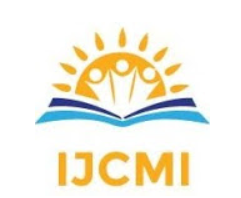

The International Journal of Computational Mathematical Ideas (IJCMI) is a refereed journal that focuses on original research papers, research notes, and review articles within the fields of mathematics, computer science, and engineering. The journal emphasizes unsolved problems and open questions across various areas listed in Mathematical Reviews, covering both pure and applied mathematics, Artificial Intelligence, Data Science, and Computer Science & Engineering.
Scope and Areas of Interest
IJCMI publishes top-tier work on computational aspects of mathematics and the interface between applied mathematics, numerical computation, and systems-oriented applications in various sciences, including:
- Mathematics: Algebra (especially group theory), combinatorics (especially graph theory), geometry, number theory, numerical analysis.
- Computer Science: Computational complexity, cryptology, symbolic and algebraic computation, optimization.
- Models of Computation: Automata theory, categories and logic in computer science, Proof theory, type theory, semantics of programming languages.
- Systems: Process algebra, concurrent systems, specification and verification, databases, rewriting.
- Artificial Intelligence and Machine Learning: Neural networks, genetic algorithms, computational learning theory, theorem proving, deep learning, reinforcement learning, computer vision, natural language processing (NLP), large language models (LLMs).
- Engineering and Physics: Engineering physics, applied physics, computational physics.
- Emerging Technologies: Cloud computing, mobile computing, Big Data analytics.
- Data Science: Data mining, Data visualization, Statistical modelling, Predictive Analytics, Big Data Technologies.
Mission
IJCMI aims to provide a platform for the dissemination of advanced research and to report on the latest trends and developments in the ever-expanding fields of mathematical sciences, computer science, engineering, and data science.
Screening for Plagiarism/Similarity
All submissions are checked for plagiarism using iThenticate/Turnitin before they undergo the peer-review process.
Peer Review Process
The submitted papers should be original, unpublished, and not in consideration for publication elsewhere at the time of submission to this journal. All paper submissions will be refereed in a double-blind review process by at least two international reviewers with expertise in the relevant subject area.

The editorial process for manuscript submissions involves several key steps to ensure the quality and integrity of the published work. Here's an overview of the process:
Editorial Review and Peer Review
- Editorial Review: Upon submission, the manuscript undergoes an initial review by the Journal editor to check for basic compliance with submission guidelines.
- Double-Blind Peer Review: The manuscript is then subjected to a double-blind peer review process, where:
- The identities of both reviewers and authors are concealed.
- All indicators of identity such as names and affiliations are removed to ensure impartiality.
Reviewer Evaluation Criteria
Reviewers, usually two to three experts in the relevant field, evaluate the manuscript based on:
- Scientific soundness and coherence.
- Originality and absence of duplication with already published work.
- Clarity and comprehensibility of the manuscript.
- Interest and significance of the research.
Editorial Decision-Making
The editors make a decision based on the reviewers' reports. In some cases, they may consult with the Editorial Board. The possible decisions include:
- Accept Submission: The manuscript is accepted for publication, potentially with minor editorial revisions.
- Revisions Required: Manuscripts with minor issues, such as spelling or punctuation errors, are returned to authors for revision.
- Resubmit for Review: Manuscripts requiring significant reworking are returned to the authors for substantial revisions and resubmission. The resubmitted manuscript may be accepted or rejected based on further review.
- Decline Submission: Manuscripts may be rejected for reasons such as lack of originality, insufficient conceptual advancements, or major technical and interpretational issues.
Revision and Resubmission
Authors are expected to carefully revise their manuscripts based on reviewers' comments. This includes:
- Examining sentence structure, completeness, and accuracy of the text.
- Checking references, tables, and graphic contents.
- Decision Timeline
The time to reach a final decision varies depending on factors such as the number of reviews required and the responsiveness of the authors in making necessary revisions.
Open Access Statement
This is an Open Access journal. All articles are available in PDF format immediately upon publication, free of charge and without any subscription. Any user may download, print, or copy the articles or use them for any other lawful purpose, as long as the licensing terms are respected.
Copyright Notice
Authors retain the copyright and the publishing rights for their article without any restrictions. The submitting author warrants that the submission is original and that they are the author of the submission together with the named co-authors; to the extent the submission incorporates text passages, figures, data, or other material from the work of others, the submitting author has obtained any necessary permission.
Licensing Terms
Articles in this journal are published under the Creative Commons Attribution Licence (CC-BY 4.0). This means that users may share and adapt the articles published on this website in a reasonable manner, but they must give appropriate credit to the creator and indicate the changes they have made. Furthermore, users must not apply additional restrictions but must publish the work under the same license (CC-BY 4.0).
Ethical Guidelines
The journal follows the COPE (Committee on Publication Ethics) guidance while accepting scholarly papers for publication.
Contact
Dr. Satya Narayana S, Ph.D.,PDF(AI) FARSC
Editor-In-Chief- IJCMI
E-mail: editor-in-chief@ijcmi.in






